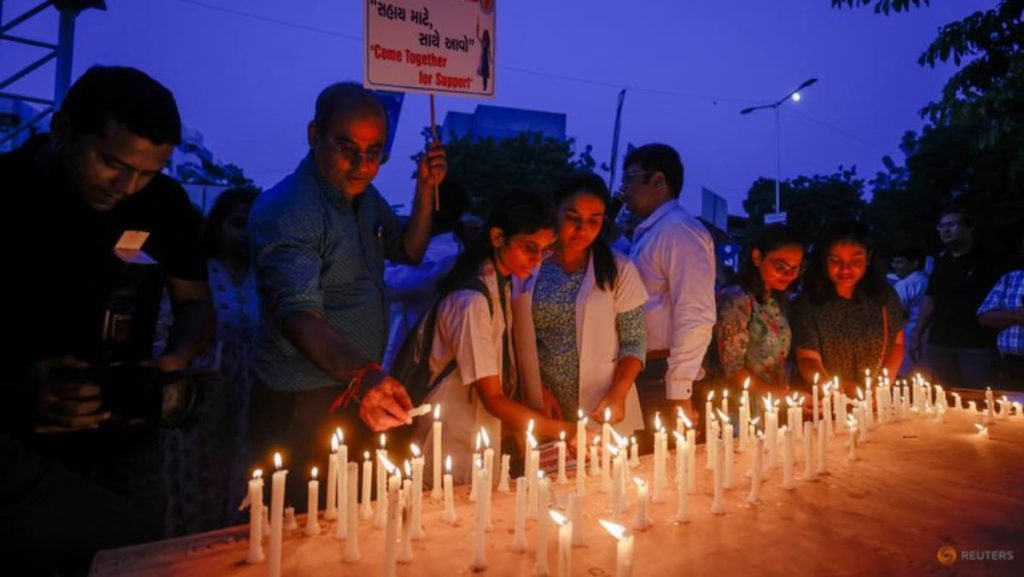The law in India has been amended to increase punishment for rape, with the minimum sentence now being either life imprisonment or execution, up from the previous minimum of 10 years. This change comes in response to the murder of a doctor that sparked protests and strikes by medical professionals and ordinary citizens across the country. While the protests initially focused on the issue of violence against healthcare workers, they have since escalated into clashes between political party loyalists, particularly between the ruling All India Trinamool Congress (AITC) and Prime Minister Narendra Modi’s Bharatiya Janata Party (BJP) in West Bengal.
The BJP, a Hindu-nationalist party that holds power nationally but is in opposition in West Bengal, supported the new law alongside the AITC. The brutal nature of the doctor’s murder has drawn comparisons to the 2012 gang rape and murder of a young woman on a bus in Delhi, which sparked widespread outrage and protests. The incident became a significant political issue and was considered a factor in the BJP’s electoral victories following the public outcry for justice in the case.
In India, the implementation of death penalties is often delayed by lengthy appeals processes, and executions are typically carried out by hanging. The increase in punishment for rape reflects a growing concern over violence against women and a push for stricter penalties to deter perpetrators. The protests and rallies that followed the doctor’s murder demonstrate the public’s demand for justice and reform in the criminal justice system to address gender-based violence and ensure safety for all citizens.
The unrest in West Bengal highlights the political tensions in the region, with clashes between supporters of rival parties escalating in the wake of the doctor’s murder. The involvement of both the AITC and the BJP in supporting the new law underscores the bipartisan consensus on the need for stronger punishments for crimes against women. Despite the political divisions, the issue of violence against women has united citizens and galvanized public support for legal reforms to address gender-based violence and ensure accountability for perpetrators.
The nationwide response to the doctor’s murder underscores the broader societal concern over violence against healthcare workers and women in India. The protests and strikes by medical professionals reflect a growing awareness of the dangers faced by healthcare workers and the need for greater protection and accountability for those who commit violent acts. The mobilization of ordinary citizens in rallies and demonstrations also highlights the public’s demand for justice and reform in the criminal justice system to address gender-based violence and ensure the safety and security of all individuals in society.
Overall, the amendments to the law on rape in India represent a significant step towards addressing the issue of violence against women and ensuring accountability for perpetrators. The public outcry and demonstrations following the doctor’s murder underscore the urgency of addressing gender-based violence and the need for stronger legal protections and punishments for offenders. The political tensions in West Bengal and the involvement of rival parties in supporting the new law underscore the bipartisan support for stricter penalties for crimes against women. The ongoing protests and rallies demonstrate the public’s demand for justice and reform in the criminal justice system to address gender-based violence and ensure the safety and security of all citizens in India.


